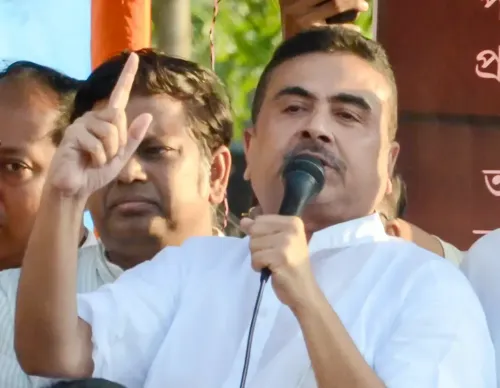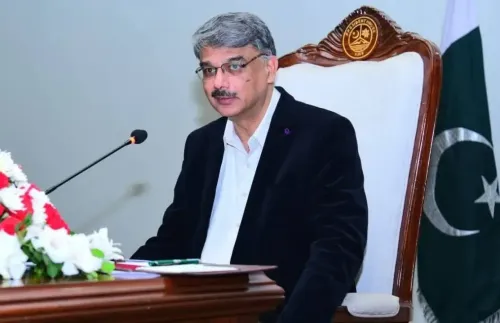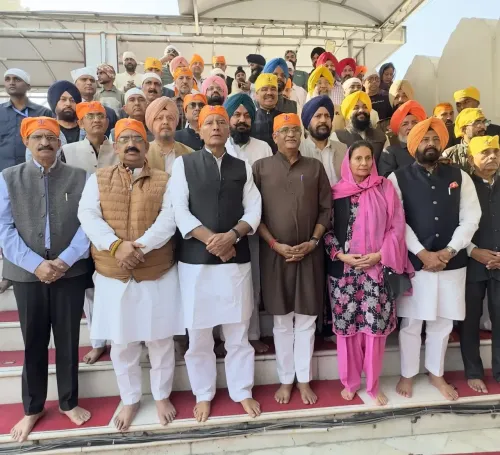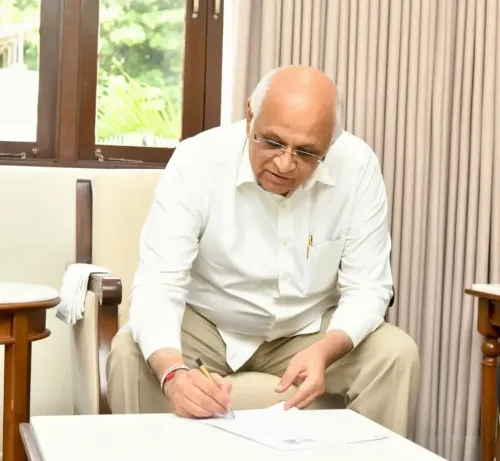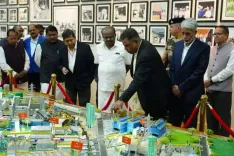Is Delhi Facing a Pollution Crisis? SC Suggests Pausing School Games and Allowing Worker Aid
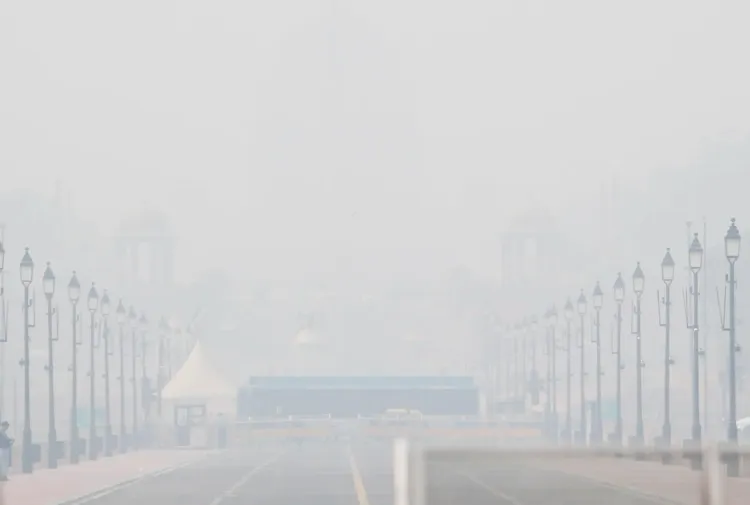
Synopsis
Key Takeaways
- Supreme Court urged postponement of school sports due to hazardous air quality.
- Children's safety is a top priority amid severe pollution levels.
- Monthly reviews of pollution measures will be implemented.
- Long-term strategies are essential to combat recurring pollution issues.
- Support for construction workers affected by restrictions is mandated.
New Delhi, Nov 19 (NationPress) As the Delhi-NCR region grapples with severe air pollution enveloped in a thick layer of smog, the Supreme Court on Wednesday urged the Commission for Air Quality Management (CAQM) to contemplate postponing school sports and games planned for November and December until the air quality improves.
A panel led by Chief Justice of India (CJI) B.R. Gavai and Justice K. Vinod Chandran issued this recommendation after senior advocate Aparajita Singh, serving as amicus curiae, raised concerns about numerous schools in the national capital and surrounding areas preparing for sports events at a time when the Air Quality Index (AQI) had fallen to perilous levels.
“Children are the most susceptible. Conducting sports now is akin to placing them in gas chambers,” Singh argued.
In response to this assertion, the bench led by CJI Gavai requested CAQM to “consider issuing suitable directions” to shift outdoor sports events to a time when pollution levels are lower.
This directive comes as pollution levels across Delhi-NCR remained in the 'severe' category on Wednesday, with multiple monitoring stations recording AQI levels exceeding 450. Areas like Wazirpur (578), Greater Noida’s Knowledge Park-5 (553), and Bawana were among the most affected, while locations such as Jahangirpuri, Ashok Vihar, Vivek Vihar, Chandni Chowk, North Campus, Mundka, and Anand Vihar continued to suffer from hazardous air quality.
Schools in Delhi have already transitioned primary classes to a hybrid format in accordance with GRAP Stage 3 restrictions.
The Supreme Court also mandated that the public interest litigation (PIL) regarding Delhi’s air quality should be reviewed monthly to ensure pollution-control measures are enforced consistently throughout the year, not just during peak winter months.
“Simply addressing the issue when pollution peaks won't suffice. Ongoing monitoring is essential for consistent implementation,” the CJI Gavai-led Bench remarked, taking note of reports from CAQM and the Ministry of Environment, Forest and Climate Change (MoEFCC).
Earlier in the week, the apex court underscored the necessity for a “long-term strategy” to address the recurring air pollution crisis in Delhi-NCR instead of relying on short-term fixes each winter.
“Suggestions can’t be limited to just a few days or weeks. We require a long-term solution to gradually lessen this issue every year,” the CJI advised the Centre.
Furthermore, the court dismissed the idea of imposing “knee-jerk measures” such as a year-round ban on construction, emphasizing that such actions could adversely impact livelihoods. In the meantime, the Supreme Court instructed the governments of Delhi, Haryana, Uttar Pradesh, and Rajasthan to provide subsistence allowances to construction workers affected by the GRAP Stage 3 restrictions, which currently impose a total ban on construction activities.
The India Meteorological Department has predicted primarily clear to hazy skies for the next 48 hours, offering little respite from the escalating smog. Recently, growing unrest over the declining air quality has sparked anti-pollution demonstrations in the national capital, with social organizations, student groups, and local residents rallying for immediate governmental action and the enforcement of stricter measures.

